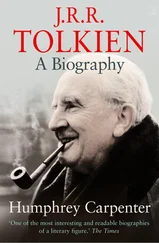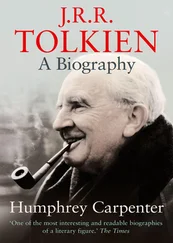The novella, which is written in the first person, starts with the hero bitterly mocking the famous words of nationalist leader Mustafa Kamil, “If I weren’t Egyptian, I would want to be Egyptian,” after which follows a torrent of biting criticism directed at Egyptians. In truth, it never occurred to me while I was writing the book that it would cause me problems. I showed it to friends and all were enthusiastic in their praise and this encouraged me to take the manuscript to the General Egyptian Book Organization (GEBO) with the idea of submitting it for publication and completely confident that it would win their attention, and perhaps even a warm welcome. But there, in the Organization’s sumptuous building on the Corniche, Egypt’s corrupt cultural establishment dealt me my first shock. It turned out that it was the custom at the GEBO to divide authors into three categories. The first consisted of well-known authors, and these had their works published straightaway. The second consisted of authors who came with a recommendation from someone important in the state, and their works were published too, depending on the degree of influence of the person making the recommendation and without regard for the quality of the work or the author’s talent. The third category, which constituted the vast majority of authors, was made up of the obscure ones—authors who were not famous and came without recommendations. These had their works referred to reading committees. The strange thing was that the members of the reading committees were not professors of literature but ordinary employees of the Organization whose bosses had wanted to flatter or reward them and had therefore put them on the committees so that they could earn extra remuneration. In other words, an employee in the Finance Department, or Workers’ Affairs, would be the one to decide whether your novel deserved to be published. In fact, the Organization’s administration did not pay great attention to the reports of the reading committees, as the authors referred to them were obscurities who had no relationships with the officials. Hence the publication of their works was a matter of no interest to anyone at GEBO.
I will never forget the critical moment when I found myself sitting in front of the employee who constituted the reading committee. He had my book before him on the desk and was flipping through it. Suddenly he said to me, with frowning face and hostile tone, “I can’t possibly publish this book.”
“Why?”
“Don’t tell me you don’t know the answer.”
“Please tell me yourself.”
“Because you insult Egypt.”
“I don’t insult Egypt.”
“You make fun of the leader Mustafa Kamil.”
“I don’t make fun of him. I love and respect Mustafa Kamil. The one who makes fun of Mustafa Kamil is Isam Abd el-Ati, the hero of the novella.”
“Do you want me to believe that you don’t agree with what he says even though you’re the one who wrote it?”
I started going through for the honorable member of the reading committee the difference between an article and a story, and how the article reflects the author’s opinion, while the story is a work of the imagination consisting of multiple characters whose opinions do not necessarily represent the author’s point of view.
The employee said nothing. Fired with enthusiasm for my case, I said, “If we follow your logic, the author would be a thief if he writes about thieves and a traitor to his country if he describes the character of a spy in his novel. That kind of logic demolishes the very foundation of literature.”
The official manifested a certain embarrassment. Then a crafty smile drew itself on his face and he said, “So you don’t agree with the hero’s opinion about Egypt?”
“Not at all.”
“Are you sure?”
“Of course I’m sure.”
“Would you be willing to write a disclaimer?”
“A disclaimer?”
“That’s right. I’ll agree to publication if you write a disclaimer in your own handwriting condemning what the hero of the book says about Egypt and the Egyptians.”
“Very well.”
I got a piece of paper and a pen from the employee and wrote as follows, under the heading “Disclaimer”: “I, the author of this novella, declare that I do not agree at all with the opinions expressed by the hero, Isam Abd el-Ati. They represent the opposite of what I think about Egypt and the Egyptians.” Then I added as my own contribution, “I would like to affirm that the hero of this book is a crazy and mentally unbalanced person and he gets what he deserves at the end. I have written this disclaimer at the request of the reading committee at the General Egyptian Book Organization.”
The employee read the disclaimer carefully, sighed with satisfaction, then wrote down the permission to publish on the book and promised me that it would be published soon.
3
Why did I agree to write that ludicrous disclaimer? Because I wanted to publish my first book and because I calculated that it would cause a scandal that would reveal the corruption and ignorance at the General Egyptian Book Organization. That was why I added that I was writing the disclaimer at their request. Some weeks passed after this incident and I went once more to the Organization to ask them what was happening with the book. I found a different employee. When I told him what had happened, he took out the book’s file (which had not moved from the drawer in the intervening period). As soon as he opened it and read the disclaimer, his face took on an expression of panic. He questioned me and when I told him the story, he said, “No. That’s nonsense.”
Then he tore up the disclaimer in front of me and told me quietly, “Listen. We will publish this novella once you have taken out the first chapters. What’s your reaction?”
My reaction, of course, was to snatch up the manuscript from where it lay on the desk in front of him and leave the building. I have never been back. I was extremely depressed but after a while I pulled myself together and decided to publish the book at my own expense. As I’d completed a collection of short stories during the same period, I put the stories and the novella together in one book, printed just three hundred copies, and distributed these to critics and friends. The book met with an astonishingly warm welcome and was praised by many critics. This put me in a strange situation for a period—that of being a writer without readers. The critics praised my book in the newspapers, but anyone who read those articles and then went looking for the book would not be able to find it. Bad luck, in fact, continued to dog the work. After the great success of The Yacoubian Building, publishers started pressuring me to give them anything I’d written. I took The Isam Abd el-Ati Papers to a major publisher, who read it and said, “I like it very much, but frankly I can’t take on the consequences of publishing it. The opinions expressed in it could get me put in jail.” Indeed, a well-known critic, who hates me for personal reasons, wrote, without the slightest embarrassment or sense of guilt, a long article in which he deliberately confused me with the hero of the story, using this confusion as a base from which to accuse me of despising my country and of being infatuated with the West.
This is the history of the book that you are holding in your hands, which I wanted you to know before you start reading it. I am confident that the majority of readers will understand that literary characters always possess an existence independent of the writer. As for those who would hold me to account for the opinions of the hero and consider me responsible for them, I repeat to them, with respect, what Dello Strologo, the owner of the Italian cinema said one day to his audience: “This screen is just a piece of cloth, on which images are reflected. In a short while, you are going to see a speeding train…Remember, gentlemen, that this is only an image of a train, and can therefore do you no harm.”
Читать дальше












